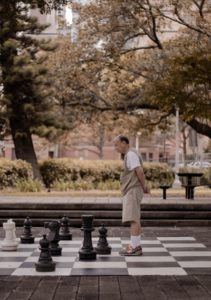Project Description
… for someone with dementia or with age related wobbles of ability.
Four Sections :
General Principles: What can I do to help?
Arrange the Household,
Financial Affairs,
A Loved One in a Home for the Elderly: Tips for spotting the quality of a home
1. General Principles
- Be a source of regularity for them. All around them may feel altered and destabilised so your reliability and steadiness is invaluable.
- If they say things or believe things that are not real or very bizarre, try not to correct them as it only makes them feel inadequate. Instead appreciate that many times at some level they know their understanding is faulty. If you think it harmful for them to continue in their delusion then say e.g ‘ I can’t see that your mother is the woman in the red dress. Maybe that is your dementia altering your sight?’ All depends on personality and relationship but accepting what they say may yield some interesting conversations and help you understand their reality better.
- If they express a desire such as ‘I want to go to the zoo/seaside/concert/gallery/Newcastle’ make sure that before you dismiss it, you go through the possible steps to actually make it happen. This could raise spirits and you might even have a good time too!
- If a desire they express is not going to be possible to fulfill e.g ‘ I fancy a trip to Australia, Russia, a swim in the river.’ then respond with, ‘That would be nice’ or ‘Let’s talk about that next week after your trip to the cinema/hospital’ [ideally using a nice example as something to look forward to!]. Usually the desire passes but the important thing is that it has not been squashed with negatives. Be inspired by Wendy Mitchell who writes of a good life with dementia-What I Wish People Knew About Dementia by Wendy Mitchell review – a book of hope | Health, mind and body books | The Guardian
If they are at a stage where all short-term memory is going fast then:
2. Arrange the Household
- Get a white board:https://www.theworks.co.uk/and pens that will wash off board [£5 and £3 for pens]. Put the events of the day/week/month that are coming up- positives as well as hospital appointments. Don’t forget to write what day, month and if necessary, year you are in at the top!
- Capacity to work machinery seems to go quite quickly so either get a simple answer machine that is visible, or make sure you remember to listen to their messages. These could be crucial re health matters but also for their morale, in terms of knowing people are thinking about them. This applies to TV, DVD and any other machinery. If you can replace it with a simpler version then do! See link to dementia friendly radio: Relish Radio for Dementia, Alzheimer’s & The Elderly (relish-life.com)
- Write out clear instructions and stick these to the wall on how to work the heating, TV, DVD, or CD. There will be a time when these won’t be understood as well. Keep looking out for CD’s, DVD’s, podcasts they can operate that put them in touch with their tastes and earlier good times and memories. Carry on making memories with them through planning trips, creating entertainment and organising social events
- Put keys/bags/glasses in one place or area of a room. Many hours are lost to anxious searching. Accept that things will continue to go missing and leave an extra ten minutes before you need to go out anywhere for the gathering of materials for the expedition!
- Have just one diary in the home as anymore leads to multiple confusions of appointments. Keep it by the phone.
- Don’t have more than one phone as phones are liable to be left [mid conversation sometimes] at various locations around home, unhooked, and therefore person is not able to make or receive calls.
- Have regular throw out sessions. Do involve the person with dementia in this activity if rearranging their belongings does not distress them, and therefore you. It is good if they can feel in control of reorganisation and through this experience they may rediscover valuable objects to them by being in a position to decide their fate. Enlist friends and relatives to dispose of clutter to charity shops on a regular basis. Clutter causes further confusion to many people.
- Light, clear spaces are best for those with dementia as with some sufferers their depth perception and 3D appreciation are affected. Too many objects can lead to clutter and confusion in mind, unless hoarding tendencies are so strong that to disrupt clutter would be counterproductive.
- Find out what the person’s prized possessions are. Discuss them and have them near at hand so they can be focussed on regularly and actively enjoyed.
- Photos: Gather them together. Make montages [if there are lots] with new selections of photos. It is fine to mix up era’s and time lines in photo form. This may well reflect the jumble of events in their mind but will also provide new opportunities to talk and reminisce about parts of life; the order may not be essential to positive mental health.
- If the person with dementia enjoyed doing something in particular in earlier life then make sure you bring it into their present. For example if they were a keen gardener engage them with potting a plant you bring them. If they loved cooking give them a wooden spoon and ask them to stir the soup. If they at any point in their life enjoyed singing or dancing make sure you find out if your local area does a choir or dance group for older and vulnerable people. There is a good chance they will, if you are in a city. There is always a risk of being interpreted as patronising, but I encourage you to take this risk as participating in activities which connect people to positive sensory memories can boost a sense of self and morale. Alcohol consumption is a sensuous real pleasure for many but can become worrying for relatives of someone whose capacity to manage themselves is deterioating. Would they really notice if red/white wine was replaced by non alcoholic red/white wine? Sometimes blackcurrant juice in a wine glass satisfies the person just as much. The sense of taste changes in later life but the idea of a glass [or two] of wine at the end of the day remains the same. Do experiment!
- If it feels to you that the confusion about which home is home, or who people are to them in terms of relationship is bothering them, then create a time line. Chart photos and addresses of when they have lived in their various homes particularly if there have been many. Stick it up somewhere suitable or roll it up to take out when wanted. Wallpaper lining paper is cheap and a flexible size to do this with. Please see Downloads section for further ideas.
3. Financial Affairs
You may find Subjects we don’t often talk about helpful in the blog to read through:
- Do get Power Of Attorney sorted out at the earliest point possible. Ideally this should be before there is obvious impairment in the understanding of legal issues or complex financial or welfare issues. A power of attorney arrangement can be a delicate and sad thing to organise but essential to those around someone who is losing their faculties. It allows those with power of attorney control of their outgoing money and incoming money and direct liaison with their bank/investment company/financial advisor. It is important to note that this is at the person’s discretion and they can revoke the power of attorney at any time if they disagree and have capacity to effect this. As people get more vulnerable they are at the mercy of cold callers for charities or other causes, either on the phone or in person. If they have a warm heart this can easily slip into abusive practice from unscrupulous manipulators. Just watch ‘Rogue Traders’ to get a feel for what can happen. See link to government site to download power of attorneys:
Lasting and enduring powers of attorney forms – GOV.UK (www.gov.uk)
If you want to purchase an ordinary power of attorney whilst a person is temporarily incapacitated which they can revoke anytime then this is more straightforward. It needs a witness but is not operated through the office of the Public Guardian like a lasting power of attorney. Amazon sell a solicitor drawn up one for £12.99.
See link: https://bit.ly/42gbJBw
- Try to ensure all letters, communications on finance are dealt with by someone else than the confused person. Its easy to do this once there is power of attorney.
- If you do have power of attorney and the vulnerable person has ceased to understand or be able to handle money, do keep on allowing them to spend it with someone accompanying them. It is an important power and pleasure to have cash to spend on your favourite packet of crisps, soft drink, newspaper or whatever takes your fancy. Patronising as it may sounds letting the person keep wallet, passport, or cash is an important message for self-esteem and sense of purpose and power.
- Filling in the power of attorney form in a good mood in a calm atmosphere can actually be a vital and empowering thing to do. It enables a conversation to take place on what caring facilities the person in later life will accept, whether in the event of illness what their wishes are in relation to life support. It becomes a living will. This potentially somewhat depressing area of conversation can then be returned to at later points. Other questions on where they want to be buried, if they want to be cremated and plans for their funeral service in terms of music and poetry can more easily be embarked upon. Often the relative finds these topics harder than the person concerned who would want to leave a legacy in their service and may be thinking all these things anyway. There are tougher challenges in dementia than thinking about death.
- If your loved one has over 23k in savings paying for care is what is expected. Ask around in relation to care agencies but be mindful some of them are merciless money makers and rake in huge profits paying the carers they find 25% or less of their profit. One agency claims double for bank holidays but pays their carers not a penny more. The advantage of care agencies is that they can quickly replace staff in emergency situations, their staff are checked for criminal history and references are gained. You do not have to find insurance for having a carer. They also provide flexibility and staff can easily be changed if the chemistry is not good. The disadvantages are a lot of the fast disappearing funds are not going to the carers themselves and there can be little continuity of care as they do not guarantee that staff will stay for long even if the chemistry with the vulnerable older person is good.
- Your loved one may be eligible for council tax exemption or discount. See link:
https://www.alzheimers.org.uk/download/downloads/id/1821/factsheet_council_tax.pdf
- Keep a record of all financial transactions in one place as it will be easy to forget the details. If you are giving carers cash then make sure they sign for its receipt and that there is a margined book to record this.
- Put cheque books or other objects of value and financial information in a locked space within the house and if you have power of attorney or if your relative/vulnerable person agrees then keep their cash point cards yourself. Give them their own cash as well as regular sums for every day expenses to the carer.
4. A loved one in a home for the elderly
It is a tough and painful decision to make but once made you will soon have a sense of whether your relative is being kindly cared for. Here are some tips for making sure that their care is as good as it should be.
- Try to organise as many visits as possible and do choose a home when visitors can drop by anytime without warning.
- Look closely at your loved one:
- Are their finger nails and toe nails cared for?
- Is their hair cut?
- Is there dust in their room?
- Are they getting included in any home outings?
- Are there outings for residents judged well enough?
- Is their skin looking healthy? If jewelry or make up is part of their previous identity do encourage this to be continued by staff. Unsightly hair plucked from chins or shaved off can make a difference to self-esteem and also other’s perceptions of them which in turn effects them.
- Who visits the home and on what days? This is useful to know so that you can avoid your valued visit clashing with a church service/entertainer/quiz/ or any other activity that your loved one might miss as a consequence.
- Does the home have animals? Pets are so important in connecting people and reminding them of the existence of unconditional love! Do they have pets that visit? [therapeutic dogs for example or lamas]. See link https://petsastherapy.org/
- Ask how they are they eating, sleeping and how often they are being washed or changed [if incontinent]. Will staff have reviews and let you know of changes? Is there a key person [staff member] for your relative/friend who you can touch base with? This information should be available and in written form.
- What is the home’s Safeguarding policy? Do they have two members of staff present for baths and intimate care as well as changing clothes?
- Check out what the meals consist of if you are worried that your loved one is looking suddenly thin or said not to be eating. Arrive at a meal time and see if you are offered any and if you would fancy it, if you were offered any! Are the menus printed out and stuck on a wall or on the tables?
- Do they seem known by staff? This is in terms of likes/dislikes and appreciation of their personality. Are the staff known to you or are there always new faces? This may indicate use of agency staff who may be less likely to be tuned into your loved one as they don’t know them over time.
- Do the staff wear ID badges? This is not only helpful for you but makes people feel accountable and useful if you are reporting any unfortunate attitudes or events. It is also good for the residents who like to be able to call people by name, as short term memories go so easily.
- Type out in large font key likes and dislikes of your loved one as staff change, and no one’s memory is infallible. Have some blue tack stored in the room and marker pen to mark items as belonging to your contact and stick the likes and dislikes to the bedroom wall to be seen by all. This serves to remind new and old staff for example that a love of music is important so they just might turn on the CD to help the person feel relaxed as they change them or remember to get the Tabasco sauce out of the cupboard for an evening meal.
- Are there reminiscence groups/activities? See Reminiscence Group guidance on the website and share with staff. Is there any enthusiasm shown for new approaches or ideas?
- Is there an Entertainments Manager? Are you given lists of what activities might be available to book your loved one in on?
- There should be something happening of interest or a stimulating event every day. You may have to be proactive here as the residents can’t always represent their enthusiasm at the right time. If there is a choir or activity that occurs out of the home find out if they have befrienders or volunteers who can escort them there and back. You may need to pay for someone to do this if money can be accessed. A home with a piano is always an asset that visitors and invited musicians can play in a non- intrusive and spontaneous way.
- Share new ideas with them showing enthusiasm and hope for change if change is needed.
- Remember that each home will have a board of trustees that runs it. Read the stated ethos of the home which will be on the internet, website or in hard form somewhere. Ask the manager for it if you can’t find it!
- You can write or contact the board with concerns. Use contacting the press as a last resort and quote relevant ideals which are not being met and should be found in the written ethos and value statement of each home.
- Finally keep on visiting, even if you don’t think the visits make much difference and your loved one is a shadow of what they were. Hearing your voice may draw pleasant associations even if you can’t be sure. Staff in homes for the elderly regularly comment on how visits lift spirits and they are the ones who see your loved one before and after you have been! Does the home keep a record of all visitors? Ask to see it. Start your own visitors book in the room if this is easier and you can exchange ideas this way from visitor to visitor. Knowing who has visited is useful to know as something to talk about. Even if a visitor is forgotten about you can’t measure the morale boost that may be involved.
Your loved one’s bedroom/sitting room/bathroom
Make it as like home as you possibly can with favourite pictures, ornaments, bedding, cushions and even furniture if possible. Photo albums within reach and photos of key people around even if they are not sure which ones are alive or dead or who is who. It all matters and orientates them. Install a TV and music system. Visit charity shops to ensure they have access to films and music that is relevant to their lives. The communal rooms will have current TV on. When you leave after visiting consult them on what music or film they might like to be left with. Make some sort of inventory so you can be aware of any missing items [this rarely happens but it is worth doing].
Calming, concealing and comforting aromas in the room
A mist diffuser with a light- currently only £19.99 via Argos through Amazon. Options of many others too. Follow the link.
These are excellent and can make a room smell wonderful. There are a huge range of essential oils that can be dropped into water that is diffused around the room in steam. They automatically turn off when the water runs out so are no danger. They can be found at Argos. Unwanted smells are usually a fact of life in old people’s homes but they can be outwitted by these wonderful contraptions.
Finally – it can often be hard to hear the mumbles of someone suffering from dementia. Do invest in a karaoke mike. In conversation it might be easier to pick up what they are saying [though it wont necessarily make it make sense] and well managed, it could lead to some mutually enjoyable singing between residents or from guests. The mike can be handed around with supervision! https://www.amazon.co.uk/Wireless-Microphone-NASUM-Bluetooth-Recording/dp/B0746KM7F8
Do contribute any other ideas that I can add to these top tips via e mail to: natalie@lifestoryhub.com













